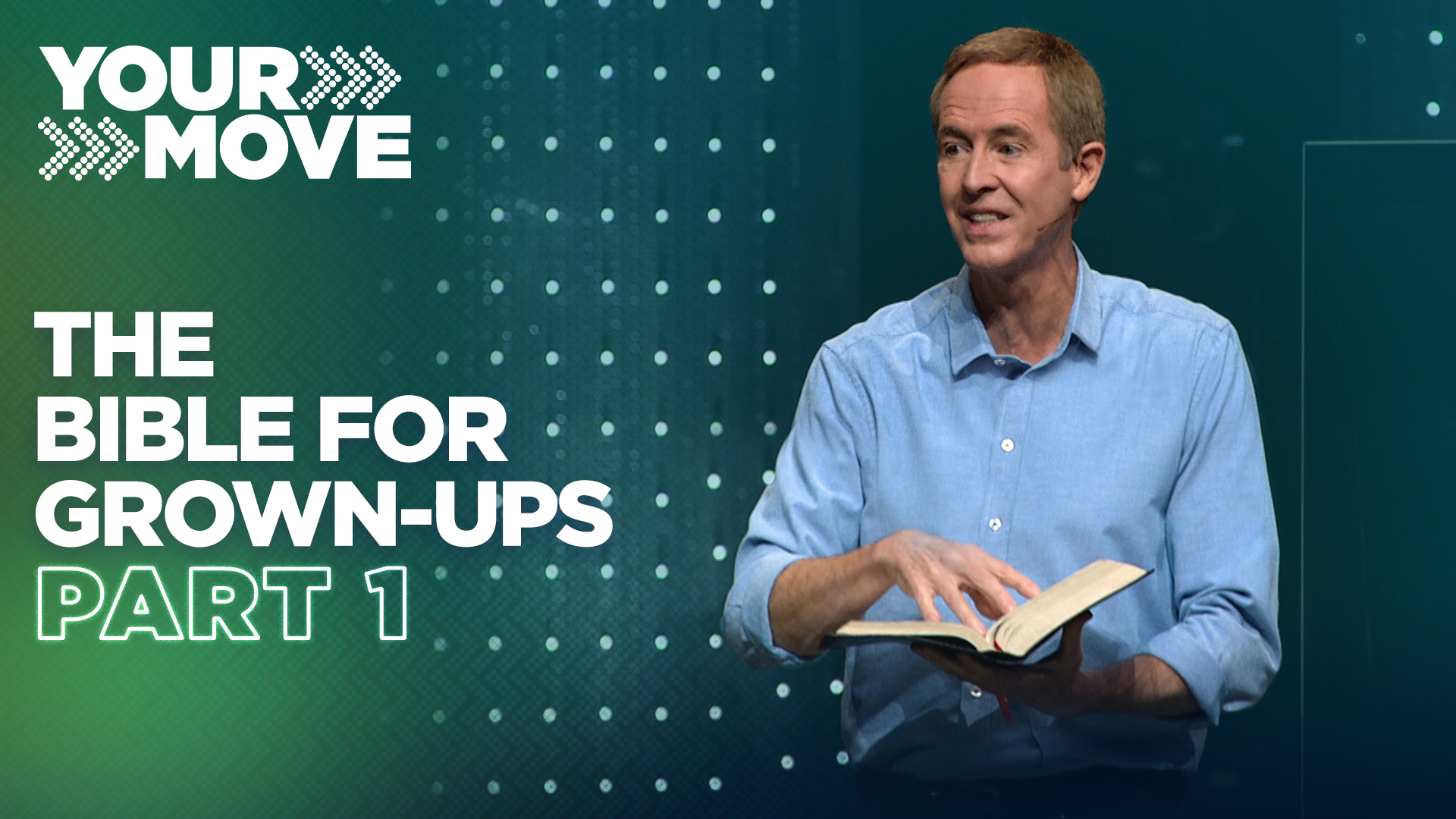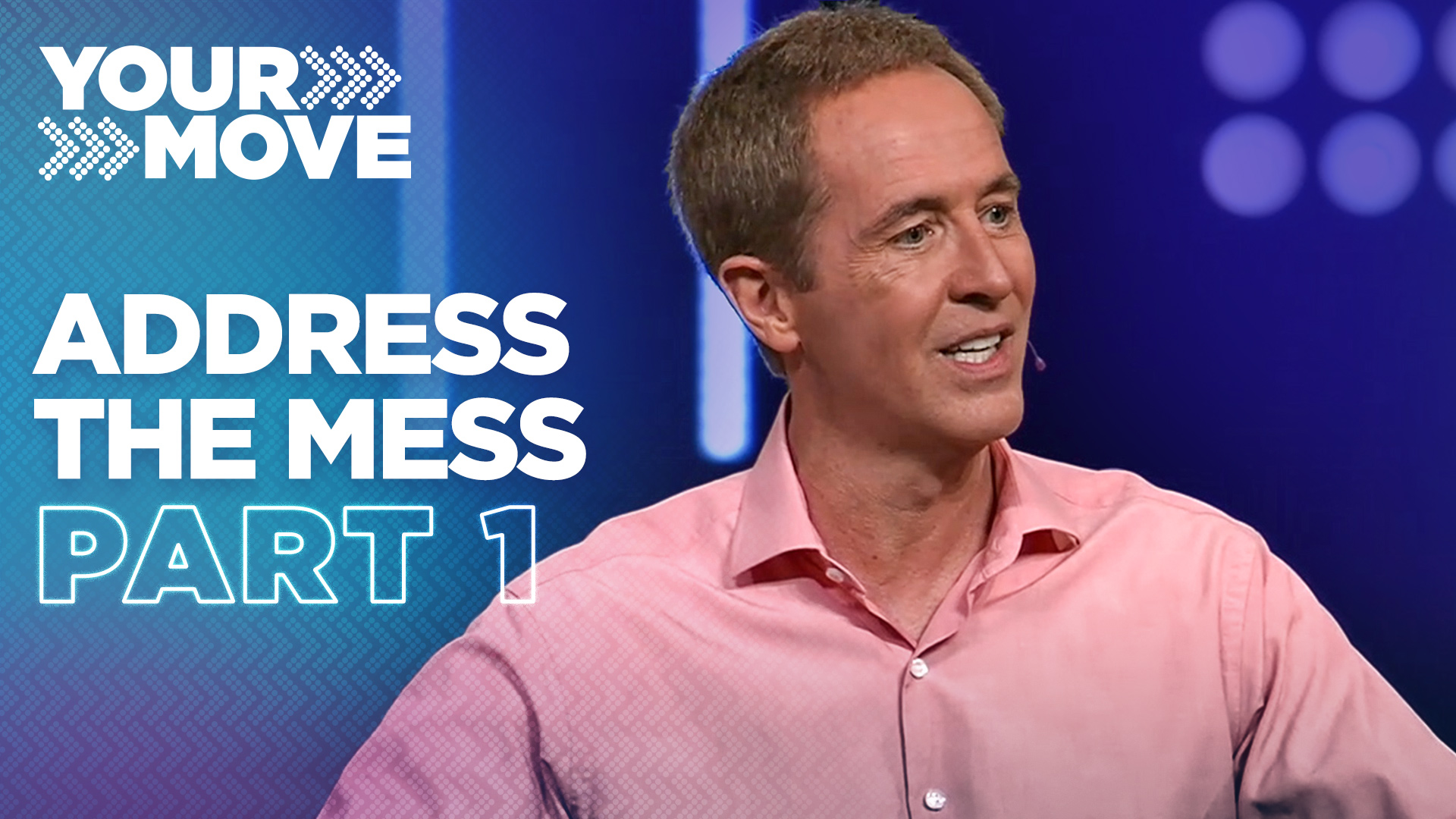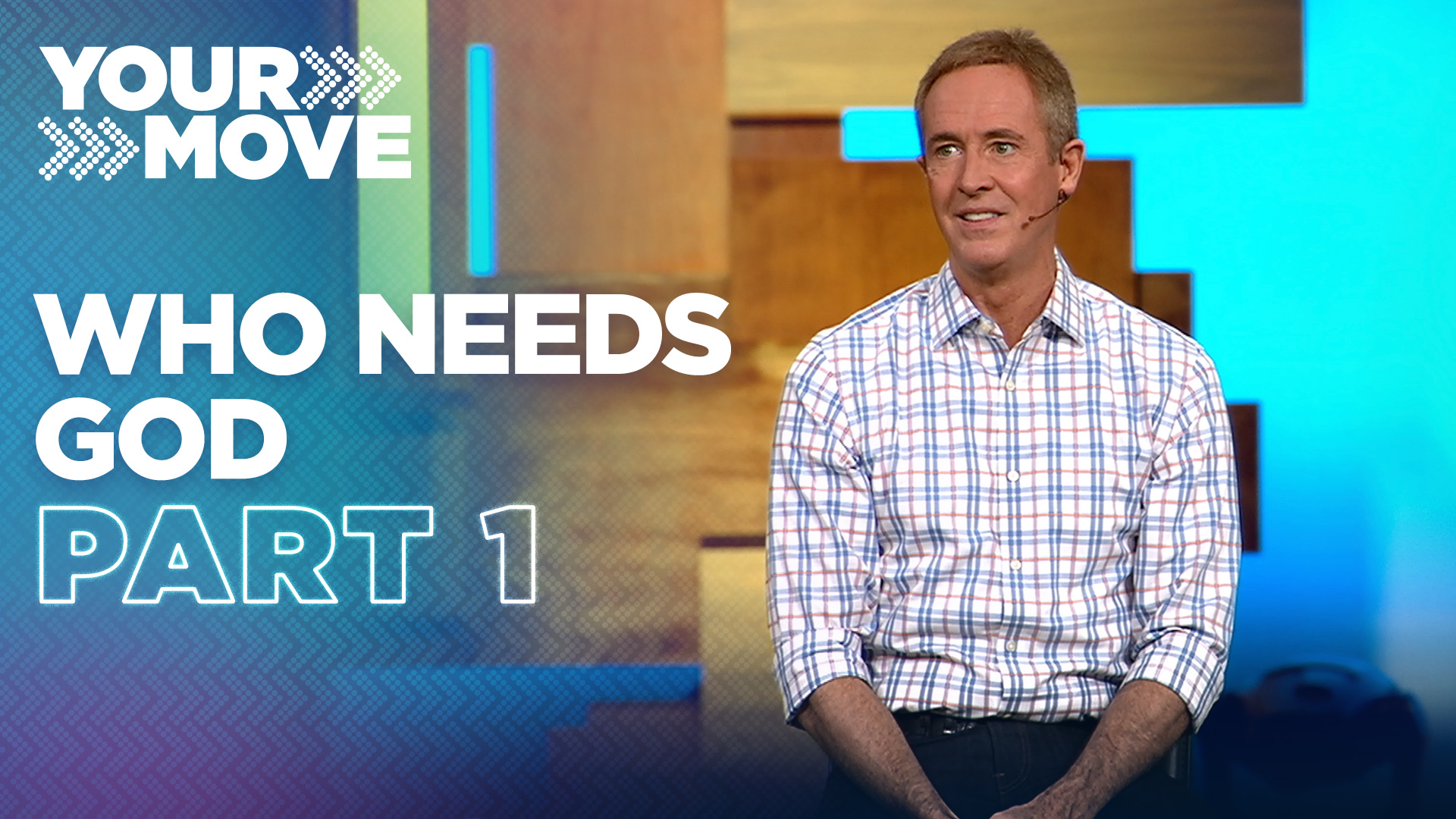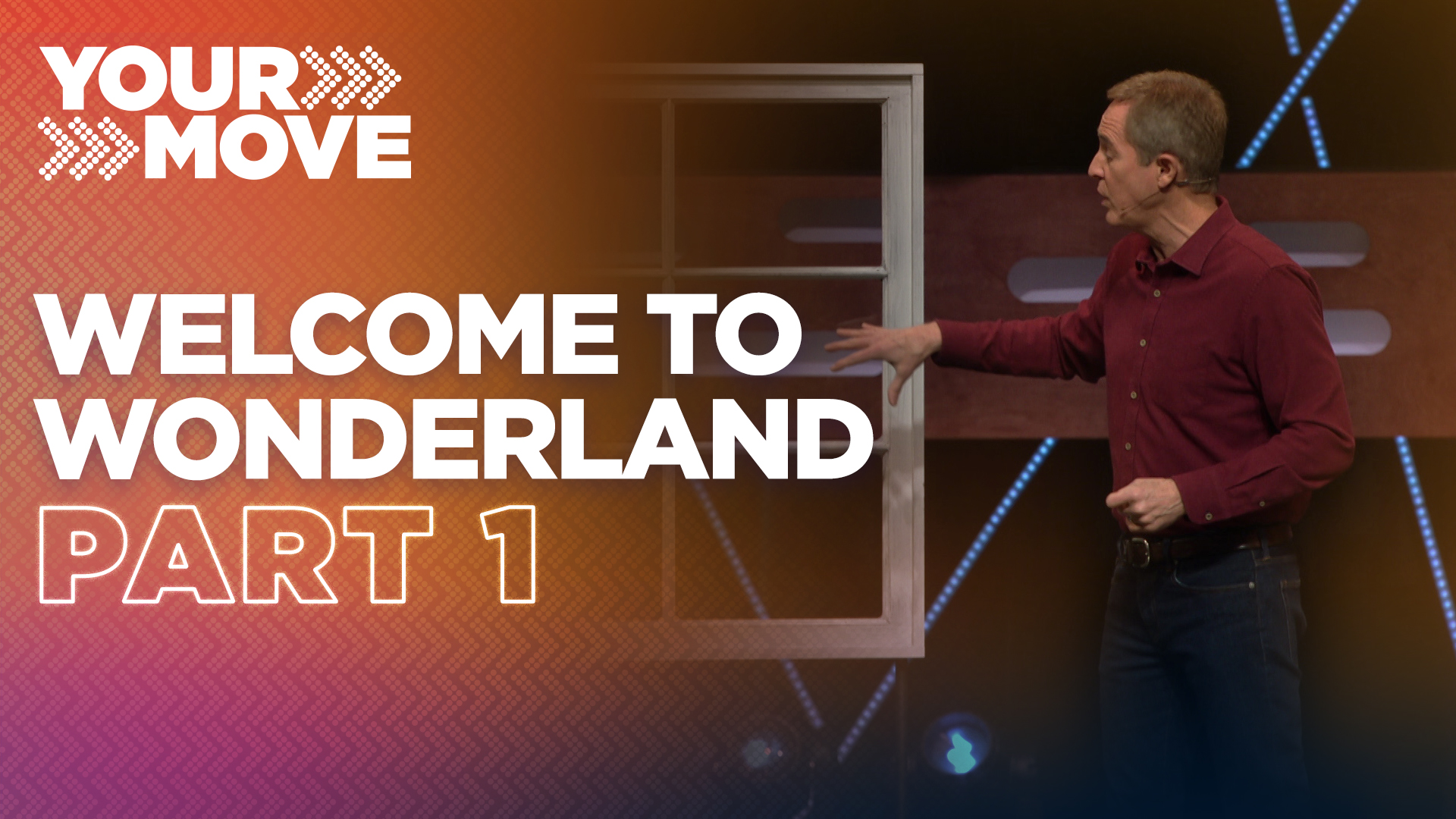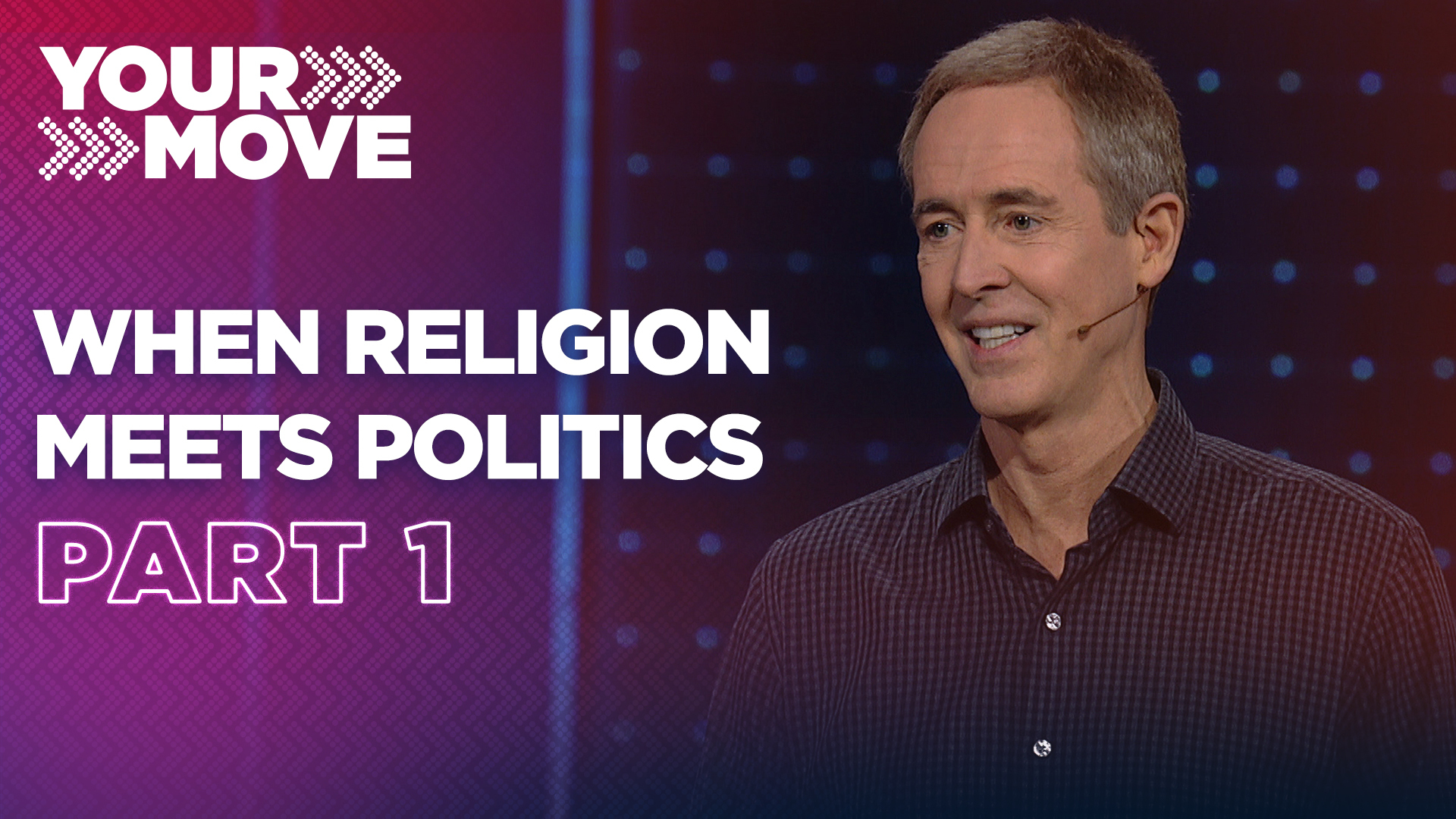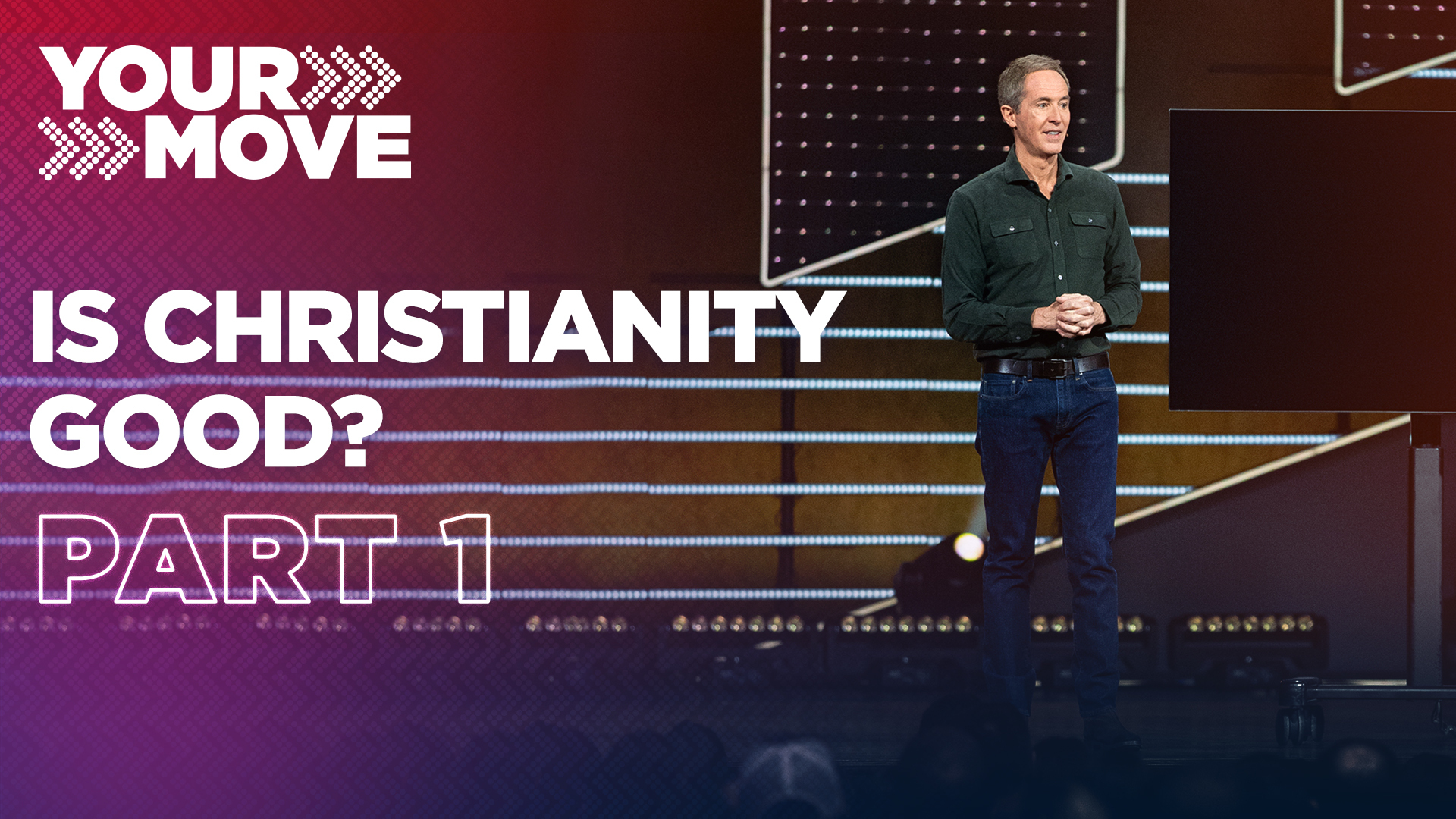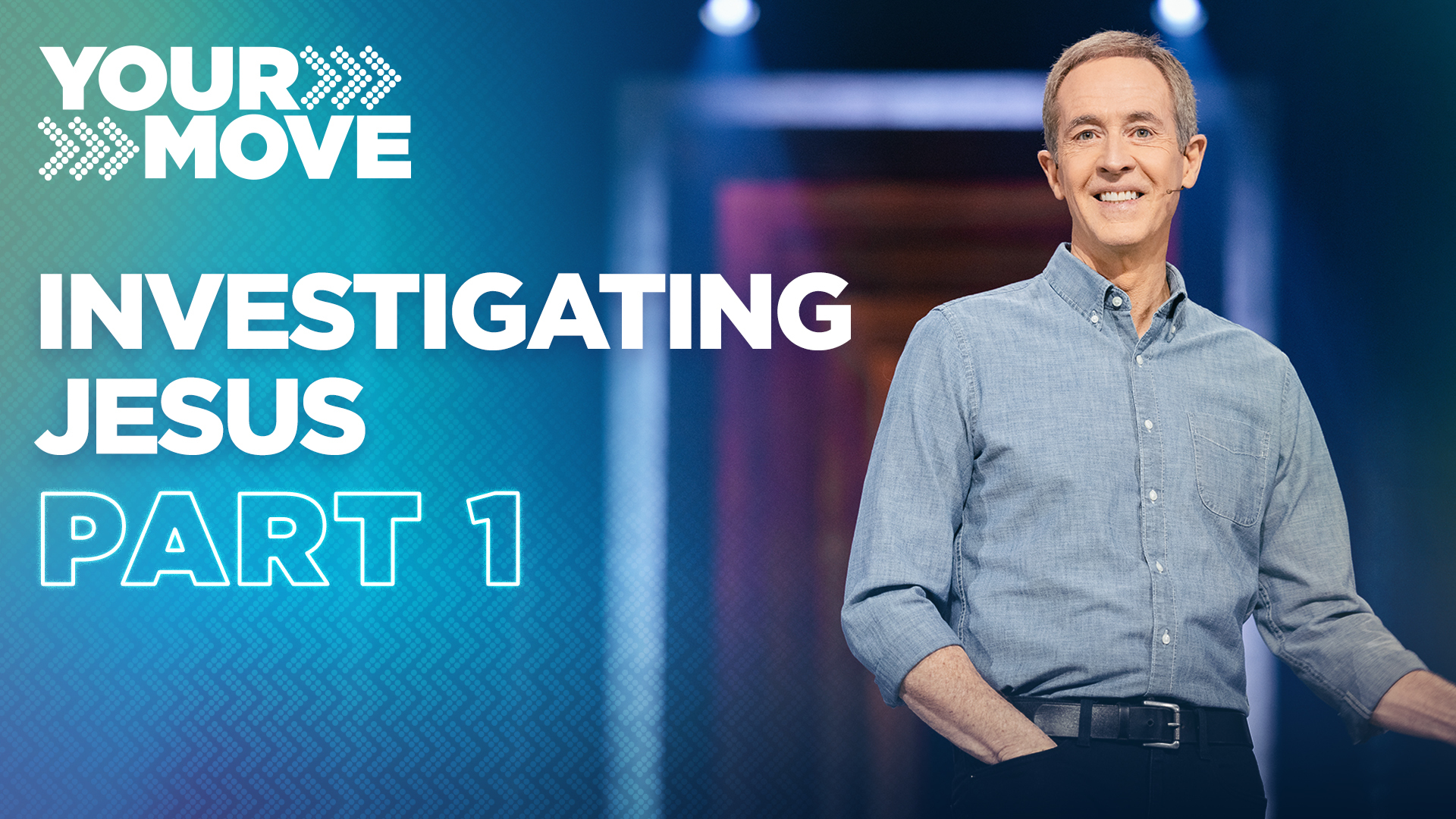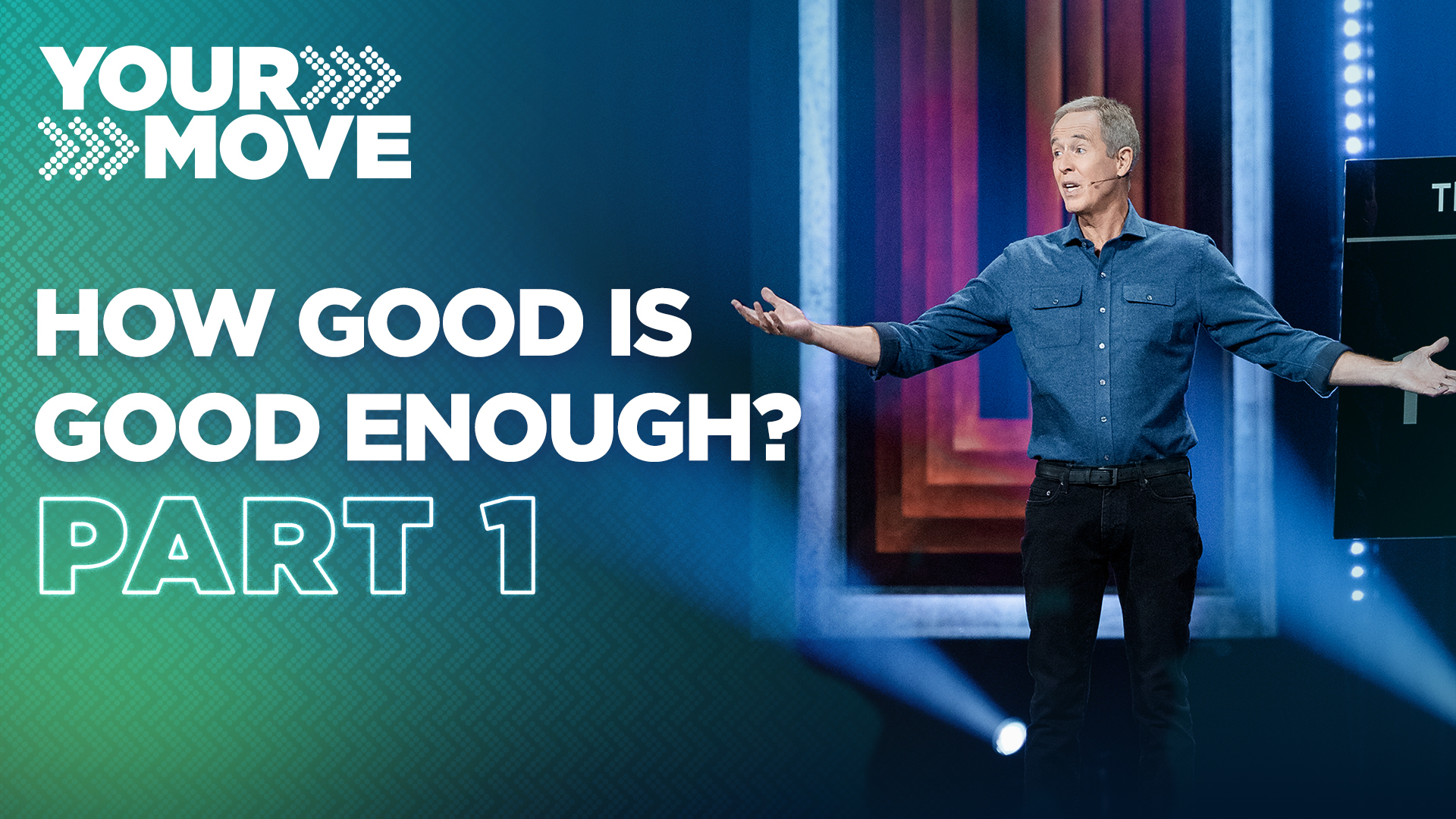We have an invitation to follow someone who will make our lives significantly better—it may not be easier, but it will absolutely be better.
- Why do you think forgiveness is so challenging for many of us?
- What is the benefit of forgiving someone who hurt you, even if they don’t deserve it?
- Who do you need to forgive today? What is one step you can take toward moving in the direction of forgiveness?
- Think about the things you know you should say no to (because they are harmful to you and/or those around you). How can you set yourself up to successfully avoid those things daily?
NOTE: The following content is a raw transcript and has not been edited for grammar, punctuation, or word usage.
Today we’re wrapping up our series investigating Jesus, it’s been a lot of fun, it’s been a lot of fun for me to prepare this series. and we’ve said throughout this series that the subtitle, How we know and why we follow is so important, because we’re asking the question, how do we know there’s anything to the story of Jesus, and then we’re asking a more fundamental, a deeper, a more practical question. Why follow? Why would anyone in the 21st century commit their lives or kinda like as we’re gonna talk about today, sort of write a blank check with our lives to a first century rabbi? How do we know there’s anything to it, and why in the world should we choose to follow? How do we know that Jesus is even worth following? But this is important to know, because Christianity or the credibility of Christianity rises and falls really specifically on the identity or the supposed identity of one individual, Jesus of Nazareth, the whole thing rises and falls on this.
Which means, as we’ve said through out, and this is such an important part, and is why I’ve repeated throughout the series, which means that if you’re considering Christianity or you’re reconsidering Christianity because you walked away and you’re thinking about coming back, or if you are un-considering Christianity, there’s really just one question to wrestle to the ground.
And unfortunately, the church hasn’t always done a great job pointing people who are considering Christianity to this question, and the question is really, this is Matthew, Mark, Luke or John, a reliable account of actual events. These are the four first century documents that document the life of Jesus from different angles, different perspectives with different stories, different parables, a different approach, but if even… If just one of these is a reliable account or even mostly reliable account of actual events, then everybody needs to sit up straight and pay attention, because it means that what Jesus said about Himself is true, and if what Jesus said about Himself is true, then he is in fact worth following and worth devoting our entire lives to. So in this series, we’re exploring, if you’ve been a long, have been along the journey with us, we’re exploring one of those first century documents that’s called the Gospel of Luke named after its author, and he says, “I’m not the only one, I’m not in some corner somewhere just making stuff up.” Many, many. How many is many? I don’t know. Is many just four? Four doesn’t sound like many to me. But many have undertaken to draw up an account of the things that have been fulfilled or the things that happened among us. Not long ago, somewhere far, far away, the things that have happened right here among us, just as they were handed down to us by those who from the first were actually part of the story, were eye witnesses. So Luke is not writing, in his mind, he’s not writing the Bible, but Luke’s extraordinary document because who wrote it and when it was written, and what it says about Jesus was so precious to the early church that it was collected and it was copied, and eventually it became part of the New Testament, which eventually became part of what we call and what we respect as the Bible. But Luke’s not writing the Bible.
Luke is just telling us what happened, and what happened at the end is why the story was worth telling in the first place. In fact, Luke would be quick to tell us if the story didn’t end the way the story ended, there was no story to tell, because Jesus was just another wannabe prophet, wannabe rabbi, wannabe Messiah, who went the way of all the wannabe hoped to be Messiahs in Judea. What happened at the end of the story actually makes sense of and creates the context for everything that happened in the story, and here’s how the end of the story begins. When they came to the place called The Skull, they crucified him there, along with the criminals, one on his right and the other on his left. It’s so interesting in the Gospels, none of the gospel writers give us any details about the crucifixion of Jesus, and the reason there are no details is because in the first century, no details were needed. Everybody had seen one, everybody had seen the aftermath of one. Parents had turn their children the other way as they walked by one, it would be like you telling me, “Hey AS, I’m gonna go get my teeth cleaned.” I wouldn’t ask any question like, what’s that like? “What happens what’s the procedure?” Why? Because everybody knows what it means to get your teeth cleaned. So in 1st century, Judea and Galilee, and in that whole region, in fact, all over the Roman Empire, all you needed to hear was, he was crucified.
He was crucified. No details needed. Crucifixion was created, we think by the Persians, the Greeks improved on it, but the Romans perfected it. It was a way to keep a man alive as long as possible. It was not just the punishment, it was a deterrent, it was terror on display, reserved mostly for criminals, political rebels, but never a Roman citizen. Luke says, this is the surprise ending… This is the surprise beginning of the end of the story, when they came to the place called The Skull, they crucified him there along with criminals, one on his right and the other on his left. And Jesus said…
And Jesus said the most remarkable, unsettling thing imaginable. In fact, what comes next, what Jesus said next, what comes next is actually the end to which Jesus invites all of us to follow.
And I imagine when Luke first heard what Jesus said from the cross, he said, wait, wait, wait. Are you sure you heard that correctly? And everyone who was there and we’re about to meet at the end of the stories, is a lot of people who were there, they said, No, no, we were not confused, we’re not confused.
We know exactly what he said, but it was stunning. But then again, what Jesus said at the end from the cross makes perfect sense in light of everything else Jesus said and everything else Jesus did, because all along the way, this was what he invited his followers to follow him to. That Jesus lived the way He died, and He invites us to live that same way. And it’s so disturbing, and it’s so liberating. He invites us to refuse to be like the people who don’t like us. He invites us to refuse to be threatened by the people who attempt to threaten us. He invites us not to be like the people who take their insecurity out on us. He invites us not to be like the people who mistreat us and power up on us, that if we understand what Jesus taught, when someone considers you their enemy, Jesus invites you not to return the favor, and right up to the very end, he did exactly that. Now, if you’ve ever seen someone live this out in a much smaller, less dramatic way, if you’ve ever seen someone respond or react this way, it’s breathtaking.
And so what did Jesus say that was so remarkable that I think caused Luke to say, Are you sure that’s what he said? From the cross he said, Father, forgive them. Forgive them because they don’t really know what they’re doing. They thought they did, but they did not. And the evidence is, the evidence that they didn’t know what they’re doing is because they just kept on doing exactly what they were doing. Listen to this, this next callous line that Luke adds, because this is what happened. And while Jesus is dying and while Jesus is forgiving, Luke says, And they… While this is going on and they divided up his clothes right at his feet by casting Lots. What did he say? I don’t know, who cares? It’s your role. Forgive them? Come on. How weak is that?
How passive, how spineless, what a loser. In fact, by… This is the story by first century standards, by 21st century standards, Jesus lost. His enemies won and worse than that, when they came to arrest him, you know the story, when they came to arrest him, he didn’t even resist, and when his followers who were with him in the Garden that night tried to resist, He said, “No more of this, no more of this, stop this. Put away your sword, this is not my way, this is not the way. That so kingdoms of this world one-on-one, and I have come to pave a new way. I’ve come to demonstrate a different way to resist, I’ve come to demonstrate a different way to respond and to react.” And when his followers realized he’s not even going to resist, you know the story, they all unfollowed and they all fled. But they shouldn’t have been surprised at Jesus’ response to his arrest because this is how he had lived his entire life, this has been his posture all along, and this was the posture that he insisted they take if they were going to be His follower. But it’s so disturbing, it’s so un-everything in us for most of us, and it’s why most of us would rather just believe than choose to follow, because following Jesus will cost you something. But… It’s why Jesus has so many admirers and so few followers.
So here’s the question. Which one are you? Which one am I? Which one are we? The way of Jesus, it’s disturbing, it’s unnerving. It’s really un-American.
And when you have seen a man or a woman react in such a way that reflects the posture of Jesus, it’s… Well, it’s jaw-dropping, it’s show stopping, their reaction slices through the darkness, and that’s the effect that the way of Jesus has when it’s lived out in this imperfect world. It stirs something in us. It doesn’t look weak. In fact, for example, you should look up the story of Rachael Denhollander. She was the person who addressed… She actually addressed Larry Nassar, and during this sentencing phase of his trial for years and years and years of sexual assault. As you may know, Rachael was the first person to publicly accuse Larry Nassar, the former USA gymnast doctor of sexually abusing over 200 little girls and young women. And you should look up her statement in the courtroom. I was gonna read part of it. It’s so emotional, I can’t even get through the first line. Some of you know what that first line was.
It’s so powerful, it’s so disarming, and I know so for so many people, even in our audience, it’s so close to the reality of your experience that is… I just don’t wanna go there, but you should look it up and then you should ask yourself the question, is following Jesus weak? Is following Jesus passive? Is following Jesus a way to simply lose and to lose and to lose and to lose? But when you read her words, when you read what she says publicly to the man that did more damage to her than anyone that’ll ever do damage to her, you just stop and stare. It’s… Suddenly, a little light cuts through And here’s the point, Jesus invites all of us to be that better. And in the end, he died, that better. Luke actually documents Jesus’ specific invitation to His followers to live that kind of life and to demonstrate that posture.
Jesus says, Okay, let me… Let me put it out there for you this way, if any one of you, if any one of you desires to come after me, literally, if any of you desire to line up behind me, be a part of my movement and move along with me. Yeah, that’s what we wanna do, Jesus. He said, Okay, then here’s what you’re gonna have to do. You’re going to have to… They’re going to have to deny themselves, it’s going to require that you say no to you, it’s gonna require that you are not ruled by your appetites, you’re not ruled by your ambition, and you’re not ruled by the rules of the day, you will neither have the opportunity to act or react like everybody else around you.
And then he said something that means almost nothing to us, but it meant everything to the people in his audience. And to be specific, you’re gonna deny yourself and you’re gonna take up a cross. We’ll take up his cross. Now, in the first century, if you were carrying a cross, do you know what that meant? It meant that your independence had come to an end.
And then Jesus adds a very disturbing but very important word to what he says, this is the challenge, this honestly is the differentiator, this is the difference between a believer and a follower, this is a difference between somebody who has internalized their Christianity because they hope it will serve them well. And someone who is following Jesus and wants to make a difference in the world. Daily, daily. You can pray a sinner’s prayer, very salvation prayer once. But this is different. And Luke would say, and I’m telling you, this is what makes the difference, and this is what made the difference, and this is why the message of Jesus survived the empire it survived the temple, because his followers were difference makers and they actually did this stuff, and it caught on.
This is a daily decision, this is every single morning, Thy kingdom come, not my kingdom, every single morning, Thy will be done, not my will be done, this is every single morning in my life as it is in heaven, because you are my not just my savior, not just the forgiven of my sins, you are my Lord and you are my king, and I submit all I am to all of you, my hands, my feet, my eyes, my ears, my thoughts, my resources, I am 100% yours. I am carrying a cross, I am abandoning my independence.
And follow me. Because that’s what it means to follow Jesus, to get in line behind him, to move along with this movement, it means I say no to me, and you say no to you that I submit to him that I literally follow. And Luke’s like, I know it sounds like a lot.
And when he said it, it sounded like a lot in people withdrew and people didn’t get it, and at the very end, Luke documents it, the gospel writers document it, I think Peter’s like, “Yes, put it in there.” We all ran away, it was too much for us, we didn’t wanna lose because we didn’t understand. We didn’t understand that the alternative to what Jesus was inviting us to do was to be small, to be independent and small, and to live small little lives that was gonna be just all about us, appetite-driven, consumer-driven, close and striving, clinging to things.
He says here’s how to ensure that that’s not the situation with you for whoever wants to save their life is gonna lose it.Whatever, don’t miss this, whatever you cling to diminishes over time, loses its value. If you hoard seed, they don’t produce a crop, if you hoard seed, they eventually rot. For whoever wants to save their life will lose it, but whoever loses their life for me, that is for my kingdom, for my adventure, for my movement. Ultimately, you save it, or as we say around here all the time, If you live for yourself, you’re only gonna have yourself to show for yourself, live for yourself, you’re only gonna have yourself to show for yourself, and Jesus is inviting us to sow our lives our time our talent, our resources, so that there’s something more to show, to give our lives away to something other than us that’s bigger than us, so we’ll have something other than us to show for us, and if this, come on, if this sounds threatening, if this sounds terrible.
It’s because we don’t understand it. And if this sounds threatening and terrible is because we’ve never seen it lived out or we haven’t recognized it when we have. Because when you see it, it is amazing, and when you see it, it is attractive, and when you see it, you stand at a distance and you think, I would like to be more like that, and I hope I would have responded like that, and I hope I would have reacted like that. And I hope I could come through on the other end and look like him and look like her, and have the confidence they have and the contentment they have. I hope, I hope, I hope.And Jesus is saying, “This is what I’m inviting you to do. Because whatever it is you’re clinging to, you’re gonna lose anyway, and whatever you’re clinging to and hoping it never slips out of your hands, it’s just going to diminish, and I am inviting you to something bigger and something better, and something far more significant.
It is the invitation, it really is the invitation of a lifetime, an invitation to do something noticeable and noteworthy that’s not about you.” And then he ends with this question, “What good is it? He’s like, Okay, let’s go to the and. Let’s turn this whole thing around. What good is it if somebody gains the whole world, that is whatever you wanted, whatever you were chasing you, you got it. And yet in the end, they lose or forfeit their very self.” In other words, he says, “What good is it to think the whole time you’re winning, only to discover that when the clock runs out, you weren’t even playing the right game.
And Lukes like, Okay, this is the point, this is why you gotta go back and re-read everything he said and did not that you have the end in mind, because He is inviting us not to a better version of the way that you’re currently living. He’s not inviting us to current culture, current pace, current priorities, two or one, Luke’s like, “No, no, we finally understood, he was inviting us to something entirely different, he really was the king that came to reverse the order of things. That when he said, The Son of Man did not come to be serve but to serve and to give His life a ransom for many. That wasn’t a metaphor, that wasn’t a word picture that was literal, and in the end, it all came into focus, and we finally understood that if we’re not careful, we’re gonna live a little itty-bitty lives consumed on ourselves, and he was inviting us to something grand, bigger, something that would have fruit that would last and remain beyond our lifetime, beyond our generation.
It’s an invitation to give what we can’t keep anyway, and he played that out and live that out to the very end.
Father forgive them because they think they know, but they don’t really know what they… They don’t know what they’re doing because they’re not in the game. There’s… Just forgive them. The Luke got the following from folks who were there, the rulers, the people who are kind of responsible for Jesus being crucified, the ruler sneered at Him while he’s dying, they said, “He saved others, let him save himself if he is the Christ, if He is the Messiah, if He is the chosen one, come on, if he’s a king, come on. If he’s a king and he say he was a king, if he’s the king, he should act like a king. Kings don’t allow themselves to be taken without a fight, he is no king.” The soldiers, joining the soldiers came up and mocked Him, they offered him wine vinegar. These are auxiliaries, these are men who’ve been hired by Rome to serve in the legions, who aren’t Roman citizens, they’re not even Roman, [chuckle] they’ve never been to Italy, they’re from the surrounding regions, and they hate the Galilean.
And they hate Judeans anyway, and they’re allowed to crucify one, this is their celebrating… They don’t know who he is, they don’t care who he is, they’re just celebrating the end of another Galilean. They offered him wine vinegar, they said, “If you’re the King of the Jews, save yourself. Come on, if you’re a king, do what kings do, do something for you, we know how it works.” [chuckle] Remember this part? And then one of the criminals who hung there hurled insults at him. “Aren’t you the Christ? Save yourself, come on, do you not know how the world works? If you are a king, save yourself, that’s what kings do. And while you’re at it and us.”
[laughter]
Luke will say, “What they did not know because they weren’t at the end of the end of the story yet, what they did not know is if he had saved himself, he would have forfeited his ability to save them.”
If he had saved himself, he would have forfeited his ability, his opportunity to save you, He was others first to the bloody, bitter, painful, shameful end.
Kingdoms of this world, Kingdom of God, kingdoms of this world. Kingdom of God. So who are you gonna follow? Who am I gonna follow? But what am I gonna follow? What are you gonna follow? Who’s gonna rule me? Me? Who’s gonna rule you? You? Who’s gonna be the boss of you, the King of you? Your appetites? Your ambition? Your goals and your sub-set of goals? And all those things that we should all do because all those things are important, but at the end of the day, who has the final say in your life? Who has the final say in my life? So we all have a decision to make, every single one of us.
Are you the admirer? Pretty much everybody on planet Earth admires Jesus, right? Even people of other religions, because they extract certain parts of the message that like all the one-liners, the punch lines, the parables, looks like, “Oh, oh, well, you can’t admire this guy, you haven’t read my account, if you just admire him, you don’t get it.” Admirer, or follower?
This is a daily decision, and the people who choose wisely daily are the people who change the world, and if I could just twist the knife just a little bit, isn’t there something… Isn’t there something a little bit… You know, duplicitous or disingenuous about accepting Jesus forgiveness, but resisting his invitation to follow. I don’t want a broccoli, I’ll just have ice cream, I don’t like this, I just like… And Luke’s like, [chuckle] “Oh, you can’t do that.” He hasn’t just invited you to get forgiven. He’s invited us to follow and it is a good invitation. It is a good decision, it is a better way to live.
It was about noon, darkness came over the whole land until three in the afternoon, for the sun stopped shining.
And nobody saw this coming. There was no prophecy. This was like What? And the curtain of the temple was torn in two. Now, there were two giant curtains in the temple, we don’t know which one Luke’s referring to, but two other Gospel writers say, “The curtain was ripped in two and it wasn’t ripped in two from the bottom to the top, like two folks got hold of it, slid it and just ripped it open. Plus the thing is about 12 inches thick. It was ripped from the top, [chuckle] to the bottom.”
And one of these curtain separated the Holy of Holies from everything outside the Holy of Holies that hold the most Holy place, and the other one just separated the temple from the outer court, we don’t know which one was torn, it doesn’t matter. But do you know what it symbolized? It symbolized that God in some sort of first century understanding way was leaving the temple to seek and define and reclaim his rubble race, his lost sheep, his lost coin, his lost son, his lost daughter, and that the era of the temple had come to an end. That everybody was invited, because if everybody participated, the world would certainly change.



